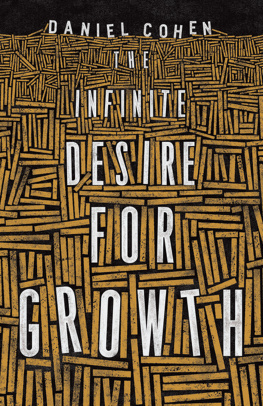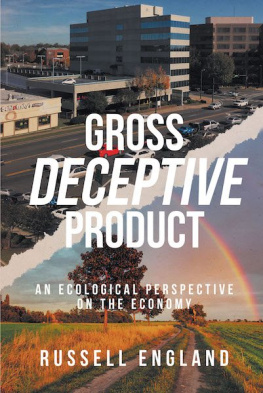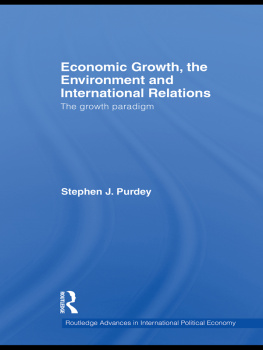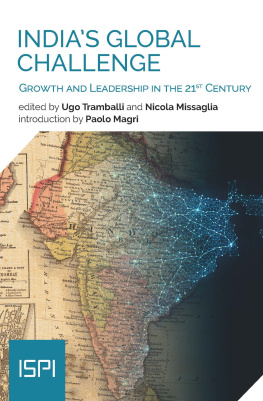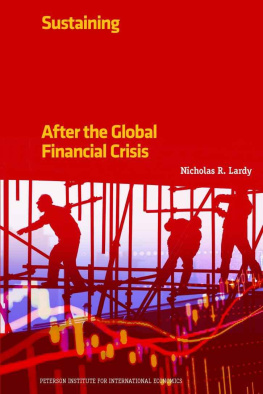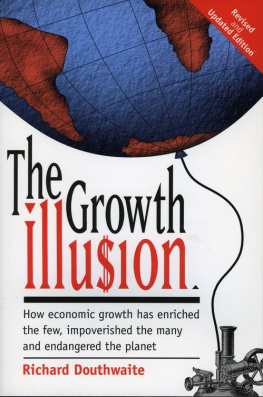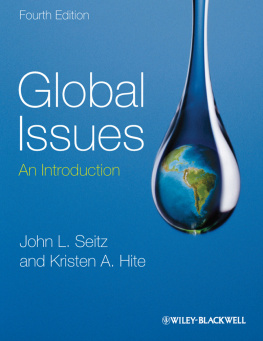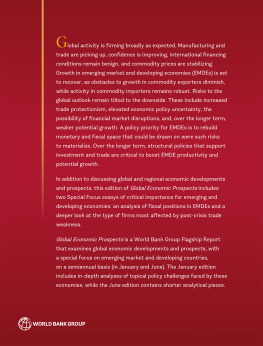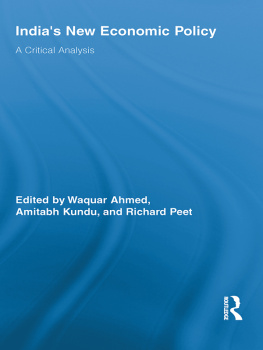
The Infinite Desire for Growth

The Infinite Desire for Growth

Daniel Cohen
Translated by Jane Marie Todd
PRINCETON UNIVERSITY PRESS
Princeton & Oxford
This book was originally published as Le monde est clos et le desir infini by Albin Michel, Paris, France, and is copyright ditions Albin MichelParis 2015. This English translation is copyright 2018 by Princeton University Press
Published by Princeton University Press,
41 William Street, Princeton, New Jersey 08540
In the United Kingdom: Princeton University Press,
6 Oxford Street, Woodstock, Oxfordshire OX20 1TR
press.princeton.edu
All Rights Reserved
ISBN 978-0-691-17253-8
Library of Congress Control Number: 2017958886
British Library Cataloging-in-Publication Data is available
Editorial: Sarah Caro and Hannah Paul
Production Editorial: Debbie Tegarden
Text Design: Leslie Flis
Jacket illustration and design by Faceout Studio, Derek Thornton
Production: Erin Suydam
Publicity: Andrew DeSio and Caroline Priday
Copyeditor: Elizabeth Stone
The translation of this book has been aided by Centre National du Livre
This book has been composed in Sabon LT Std
Printed on acid-free paper.
Printed in the United States of America
1 3 5 7 9 10 8 6 4 2
For Pauline, my baby,
who also had to read this book

The ignorance of its material conditions
leads mankind to err dangerously.
Georges Bataille, La Part maudite

Contents

Acknowledgments

The author wishes to thank Sarah Caro, the editor of the English version of the book, for her wonderful work. Her thoughtful reading and re-reading of the manuscript has made this edition a much better piece than the French original. Many thanks too to Jane Marie Todd for her superb translation.
The Infinite Desire for Growth

Introduction

Economic growth is the religion of the modern world, the elixir that eases the pain of social conflicts, the promise of indefinite progress. It offers a solution to the everyday drama of human life, to wanting what we dont have. Sadly, at least in the West, growth is now fleeting, intermittent. It comes and goes, with bust following boom and boom following bust, while an ideal world of steady, inclusive, long-lasting growth fades away.
Historians have spoken of a crisis of the European conscience to characterize the profound spiritual angst that struck Europe in the seventeenth century, when, through Galileo and Johannes Kepler, it discovered that the universe is empty, that the stars are not the dwelling place of the gods. Is life worth living, our ancestors asked, deprived of the divine promise of salvation? We are experiencing a crisis of the same nature. The very idea of progress seems to be negated when growth disappears. Today the question has become: Will our lives be harsh and sad if the promise of material progress is taken away from us?
The great English economist John Maynard Keynes, writing at the outset of the economic crisis of the 1930s, warned against the pessimism of his time, and his message remains refreshingly hopeful. Despite the crisis looming all around, he wrote in his famous article Economic Possibilities for Our Grandchildren that a period of exceptional prosperity was at hand and that the worlds economic problem would soon be resolvedjust as, in the preceding century, the problem of providing enough food had been solved. Based on existing patterns of industrial growth he boldly announced that by 2030 people would work three hours a day and be able to devote themselves to the really important tasks of art, culture, and metaphysics. Sadly, questions of culture and metaphysics have not become the defining issues of our day. The pursuit of material wealth remains our primary goal, despite the fact that we in the West are four times richer than we were in the 1930s. Thus it must be said that while Keynes, an intellectual giant, perfectly predicted the prosperity to come, he failed completely to foresee what we would make of it. Like many before him, he did not understand the extraordinary malleability of human desire, which is prepared to consume boundless riches to find its place in the world.
The so-called Easterlin paradox helps to explain Keyness mistake. According to the economist Richard Easterlin, wealth does not correlate well with happiness. A higher salary is obviously always desirable, yet once weve reached that target it is never enough. We fall victim to a process of habituation of which we are largely unaware. Furthermore, as each of us sets our own goals, we fail to take into account how much our desires depend upon the achievements of the others. If they get richer, we also want more riches for ourselves. Once the basic needs are satisfied, and sometimes even before, writes the philosopher Ren Girard, humans feel intense desire, but they do not know for what. For it is being they desire, a beingness of which they feel deprived and which, it seems to them, others have. This explains why economic growth, more than pure wealth, is the key to the functioning of our society: for it provides each of us with the hope that we can rise above our present condition, even though this dream remains elusive.
The idea of progress has been subject to serious misunderstandings throughout history. The Enlightenment, which introduced the idea in the eighteenth century, made progress a moral value, one of autonomy and freedom, using it to critique the hierarchical order of the Ancien Rgime. The Industrial Revolution, which unfolded in Europe over the course of the nineteenth century, transformed that ideal into a promise of material progress. Yet in doing so, it also established a society that completely turned its back on Enlightenment ideals. Engineers drove out priests, but industrial society remained just as hierarchical as before. In the family and in the factory, the vertical structure of society continued to dominate. In the twentieth century, Fordism and the assembly line, the standard for the industrial world, retained the age-old pyramidal organizational structure. In the private sphere, it was not until 1965 that a woman in France could open a bank account without her husbands permission. Some two centuries after the French Revolution, she was still under his guardianship when it came to most of the legal acts that affected her. For women, as for many other social groups, the idea of autonomy and freedom was dead on arrival.
It is only in the last few decades that the remaining vestiges of the Ancien Rgime have finally disappeared. Workers no longer manipulate physical objects (agricultural or industrial), but rather the flow of information. According to the sociologist Ronald Inglehart, creativity is replacing authority as the core value. In his view, Enlightenment ideas are finally prevailing: autonomy and self-direction are becoming the standard of our modernity. Sadly, it is not so simple. The new digital economy is setting in place a totally disruptive zero-cost production model, bringing in new forms of insecurity. Inexpensive software takes over routine tasks, whatever their level of sophistication, from playing chess to dispensing cash to trading on the stock market. This race against machines creates a nervous strain that is reaching new heights. As the economists David Blanchflower and Andrew Oswald have shown, mental stress in the workplace has increased over the years. To borrow an expression from the psychoanalyst Pierre Legendre, modern man lives above his psychological means. Creativity, when it becomes a business imperative, loses much of its moral benefit.
Next page
